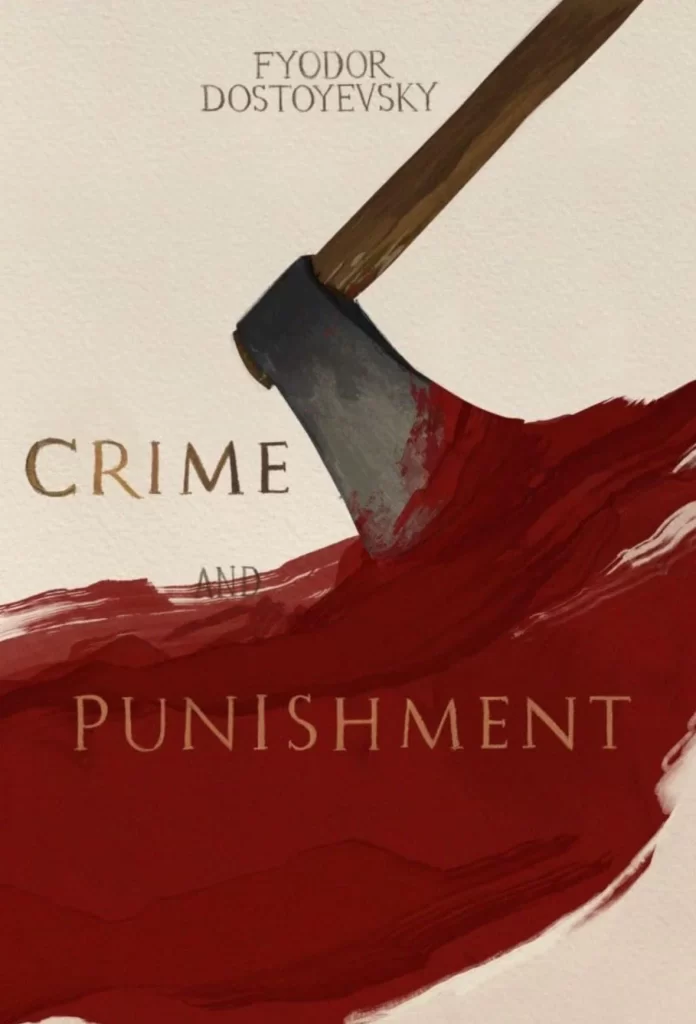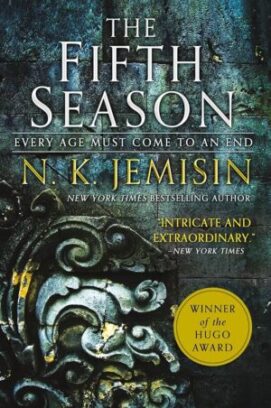Book Review: Crime and Punishment - Fyodor Dostoevsky

Let me introduce you to one of my favourite books of all time! That’s a big statement, I know, yet how else can I describe a book that completely changed the way I think about life, philosophy and all other books. I am talking about the one and only Crime and Punishment by the Russian author and in my opinion genius Fyodor Dostoevsky. This will be one of my longer reviews, since I just have so much to say and share about this book.
For my philosophy class I could choose a philosophical book to read and I saw this as a great opportunity to tick another one of the big Russian classics off my list. Anna Karenina being the other I have read, which I enjoyed very much. Up until now Crime and Punishment had been taunting me from my bookshelf with its thick spine, waiting for me to finally pick it up and read it. Since non-fiction hardcore philosophy books can be a bit tough, I thought this book was the perfect combination of fiction with the profound philosophical themes and subjects I was looking for, so I decided to finally pick it up, wipe off the dust and start my journey with it.
So what kind of novel is Crime and Punishment? The novel is a great example of psychological fiction as well philosophical fiction. It delves into the human mind and psyche whilst exploring different philosophical theories and themes. It’s also a very moral and quite religiously inclined novel with a clear message concerning the very nature of our existence as human beings on this earth. But also love, politics, friendship and society are major themes. All these things are brilliantly woven into the story. If you don’t want any information about the plot, I suggest you skip the rest of this paragraph and go to the next one. We don’t want to inflict any unconsentual spoilers now do we. Well, the story is set in St. Petersburg around the time when it was written, around 1866. We follow an ex-law student, Raskolnikov, who lives in poverty and after spending two months in his tiny apartment, deliriously stewing in the summer heat and his own wild thoughts, he concocts a plan. He decides to murder and rob a cruel old woman who runs a pawn shop. The book commences with Raskolnikov walking out of his crappy apartment to execute his plan, although you have no idea what his plan is at that point or his motives. The rest of the book explores the consequences of his Crime as well as the Punishment that comes with it and his reasons for doing it. There are also many subplots and characters, such as his sister and mother, a poor family, and the detective on the case.
One of the reasons why I wanted to read this book is because I heard this book explores the ethics around murder and killing, which interests me a lot. Not because I’m a psychopath, but because I think the subject is so difficult and I don’t see any clear moral rules around killing that comply with my feelings, thoughts and the existing laws. I do think killing can be justified sometimes, but obviously not always. The interesting and difficult questions for me are: when is it justified to kill and when is it not and who is allowed to take another person’s life and who is not and why? But more of this philosophizing later on.
The edition I read was the Penguin Classic edition which is the translation by David McDuff. As I don’t have anything to compare it with, I won’t try to claim this translation is the best, but since I do love this book, I feel like I can definitely recommend it to some degree. This edition was 656 pages long. That seemed like a lot to me at first and I did struggle with the first hundred pages. I had to get used to the language and style. But shortly after those first pages I quickly got swept off my feet and couldn’t help but devour the rest of the 550 pages in a matter of days, and not just because my assignment was due very soon. The book is furthermore divided into six parts with a beautiful epilogue to finish it off.
I started this review by saying that this was one of my favourite books of all time. I feel obligated to of course further elaborate on that and give at least three reasons why I think this is just simply a magnificent piece of literature and deserves to be one of my favourites.
The first reason is the characters. The way Dostoevsky managed to write these people into existence and make them so realistically complicated, nuanced and original is absolutely amazing. The descriptions, the dialogue, and the motives that drive them in life all contribute to the subtle complexity of these characters and make you think that they actually exist even if they are quite weird and over the top at times. For example Katerina Ivanovna Marmeladov, the wife of a poor fellow that Raskolnikov meets. At first she seems like the most hysterical housewife you have ever met. But during the course of the book Dostoevksy unravels more layers and layers of her being and she turns out to still be hysterical and panicky I must say, but with deep insecurities, issues and hardships which make her more relatable and almost likeable in a sort of ‘I feel sorry for her’ kind of way. In any case, she is a perfect example of a character who despite her eccentric personality still seems realistic. The complicated relationships between these characters and the tension that at times is almost palpable – yet mostly comes to life in the subtext interestingly– give this book an amazing intensity. Some dialogues I was holding my breath with anticipation, while others were more intellectually interesting and deeply profound.
The second reason is the perspective in which this book is written and the writing style Dostoevksy brings with it. Even though the point of view is third person omniscient, most of the time you spend inside Raskolnikov’s head, hearing his thoughts, his comments, his theories. This adds to the psychological aspect of the book. The relevant action happens inside the mind of this handsome depressed intelligent guy. The way the internal struggles of Raskolnikov were written by Dostoevksy made me feel like I was actually reading a mad man’s thoughts sometimes, but then at other times it was the most intellectual and logical mind behind those words. I could just imagine Dostoevsky frantically jotting these words on paper almost possessed by creative genius. And I can happily say that I have never read a book with better internal monologue, as well as actual dialogue.
The third reason is the philosophical nature of this novel. As I said, I read this for my philosophy class so I was specifically paying attention to the philosophical side of this novel, yet I do believe that you can’t fully understand the book, its message and its beauty without knowing a little bit about the theories criticised and discussed. One of those theories is utilitarianism. That is the ethical theory that states that good is the thing that brings the most joy to the most people or in other words the least suffering to the most people. At first glance this theory seems pretty nice, but there are quite a few problems or at least consequences that come with it. The first being, how do you know what brings the most joy? How could you ever determine that? If you ask people, they could lie. If you count the joy hormones in their blood, you don’t account for individual experiences of joy. It seems impossible. The second problem is that it gives rise to some pretty dystopian scenarios. You could for example even justify slavery and genocides. Slavery provides cheap labour that you could deem necessary for a thriving economy for the rest of the world and genocide makes sure the earth is not overpopulated, thus both bringing indirectly more joy to the rest of the world than suffering perhaps. I don’t know about you, but I would rather not live in a world with those values.
Another theory discussed in this novel is one about the meaning of life: nihilism. Nihilism states that there is exactly none of that inherent meaning or value in the universe. Nothing essentially matters. Theories like utilitarianism and nihilism, which don’t rely on spiritual powers and stay grounded in the material world, initially appealed to me to some extent as a science student. Perhaps because I’m accustomed to using my mind and logic to get me out of a pickle. However, this book highlights the dangers of these hyper-rational theories and heavily criticizes them by showing the disastrous consequences of fully giving in to them. Dostoevsky offers an alternative to these theories: religion, love, and the acceptance of suffering, with religion being the most important solution. I personally don’t believe in the God with a beard, but I can’t rule out the existence of a higher power; no one can. Moreover, the fact that at times I genuinely feel something is morally wrong suggests I have some kind of moral compass in me, which perhaps has been given to me by this higher power. I enjoyed thinking less scientifically and focusing more on emotion, religion, and spirituality for once. Crime and Punishment made me think completely differently about these hard, impossible and scary questions and I loved that.
Although I would recommend this novel to anyone, I am aware that it is not a light read or for everyone. There are elements that I think people who aren’t as big of a fan of philosophy as me or simply don’t read books to think even more about these questions might find boring or depressing. The book is not necessarily plot driven or action packed in the classical sense either. Like I said, the most action happens inside the mind of Raskolnikov. The language is not extremely difficult, but does require focus I think. If you are in doubt to read it, do allow me to push you over the edge. At least give it a shot and get through the first hundred pages and make up your mind then. Hopefully you will thank me later.
This novel is perfect for anyone interested in philosophy and psychology. If you’re looking for a beautiful thought-provoking classic, this book is for you. I cannot stress enough how good this book is. To me, the book is absolutely perfect. Some people might find it too long, but I would have happily devoured an additional 300 pages. Some people find it depressing, I thought it was inspiring and hopeful. The lesson is conveyed brilliantly—not because everything is neatly explained– but because the characters themselves grapple with these questions. The internal turmoil of Raskolnikov is one of the best things I’ve ever read. So many aspects of human existence are addressed, the characters felt incredibly realistic and the writing was impeccable. I have virtually no criticism, and I can’t wait for more people to read it so I can discuss it with them.


